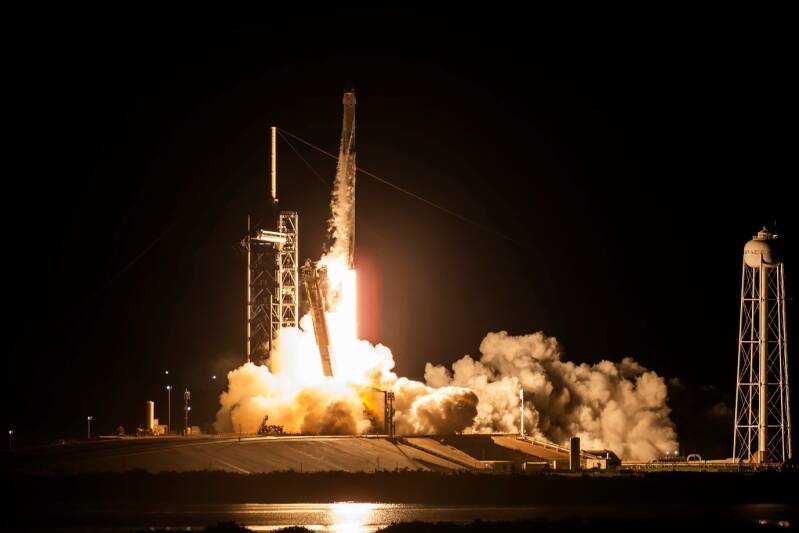The Federal Aviation Administration has lifted temporary restrictions on commercial space launches that had been implemented as a result of the recent U.S. government shutdown.

Credit SpaceX
On Nov. 16, the FAA canceled an emergency order issued earlier this month that restricted operations across the National Airspace System (NAS). The order had been triggered by a surge in air traffic controller absences, as thousands of controllers went unpaid during the shutdown that began in early October.
While the primary impact of the order was a reduction in commercial air travel at 40 major U.S. airports, it also forced commercial space launches to be conducted only during overnight hours — between 10 p.m. and 6 a.m. local time — in an effort to reduce strain on airspace management.
“Today’s decision to rescind the order reflects the steady decline in staffing concerns across the NAS and allows us to return to normal operations,” FAA Administrator Bryan Bedford said in a statement.
After lawmakers approved a spending bill on Nov. 12 to bring the shutdown to an end, the FAA gradually eased commercial flight restrictions. However, the launch curfews remained in place until the full order was revoked.
The limitations proved particularly disruptive for the commercial launch sector. SpaceX delayed its Transporter-15 rideshare mission from a Nov. 11 morning liftoff at Vandenberg Space Force Base in California, shifting the attempt to Nov. 19. The company also rescheduled three Falcon 9 Starlink missions in Florida to late-night launch windows.
United Launch Alliance similarly moved its Atlas 5 launch of the ViaSat-3 F2 satellite to just after 10 p.m. Eastern Time on Nov. 13 to comply with the order.
The FAA had the ability to provide launch waivers under special circumstances. Blue Origin secured one for the launch of NASA’s ESCAPADE Mars mission on Nov. 13, which could not be delayed into the overnight period.
Not all launches were affected. Government missions requiring no FAA commercial license — such as the Falcon 9 flight carrying the Sentinel-6B satellite from Vandenberg on Nov. 16 — continued as scheduled.
“This mission is a government mission, so it did not require FAA licensing,” Tim Dunn, senior launch director with NASA’s Launch Services Program, said during a Nov. 15 briefing. “Given that, we were excepted by the FAA and we knew last week that we would be able to launch and would not be subject to the new FAA rules.”
With the emergency order now rescinded, the U.S. commercial launch industry is expected to resume normal scheduling operations immediately.


Add comment
Comments